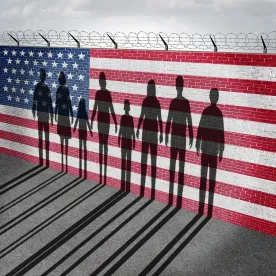In Mosleh et al. v. Pompeo et al. in the U.S. District Court for the Eastern District of California, Chief Judge Lawrence J. O’Neill ordered the Administration to show that delays in granting travel ban waivers to Yemeni relatives of U.S. citizens are “reasonable.” He opined that the government’s description of the process was “inadequate” and that without more specific information he will have to make a decision on the families’ request for injunctive relief based upon the inferences he draws from the lack of evidence.
The suit was filed by a group of U.S. citizens complaining that there have been “unreasonable administrative delays” in adjudicating their Yemeni relatives’ waiver applications. Yemen is one of the seven countries still subject to President Donald Trump’s controversial travel ban that became effective when the Supreme Court upheld it in 2018. There are exceptions to the ban for dual nationals and green card holders but otherwise affected visa applicants from Iran, Libya, North Korea, Syria, Venezuela, Somalia and Yemen must show that they are eligible for a waiver. Such eligibility depends upon a showing of undue hardship or a national interest and proof that the individual does not pose a threat to national security.
In his dissent from the Supreme Court’s opinion upholding the Administration’s third iteration of the travel ban, Justice Stephen Breyer questioned whether an appropriate waiver process was in place. His conclusion was the case for the travel ban would be weakened if one were not. He wrote: “[d]enying visas to Muslim who meet the proclamation’s own security terms would support the view that the government excludes them for reasons based upon their religion.”
Critics have stated the standards for obtaining a waiver are nebulous and that the process is too protracted. While the ban itself provides quite a number of specific examples of when a waiver might be appropriate, including the applicant’s previous admission for work, study or other long-term activity, or the applicant’s wish to reside with a close family member, very few waivers have been granted. From December 2017 until October 2018, 38,000 visa applications were filed by individuals subject to the ban. The National Foundation for American Policy has analyzed Department of State data from 2016 (pre-travel ban) and 2018 (post-travel ban). The analysis shows an average 84% decline in immigrant visas issued to individuals from travel ban countries and an average 78% decline in nonimmigrant (temporary) visas. Yemen had the largest decline in immigrant visas at 91%.
Some of the stories of individuals who are waiting for determinations are disheartening. Many of the cases involve young children separated from their parents who are stranded abroad or American citizens separated from their spouses. But businesses are also suffering. Companies depending upon key employees coming to the United States also have been stymied. Immigration lawyers attest to the fact that waivers are very difficult to come by. Indeed, in general, waivers are not issued.




 />i
/>i
